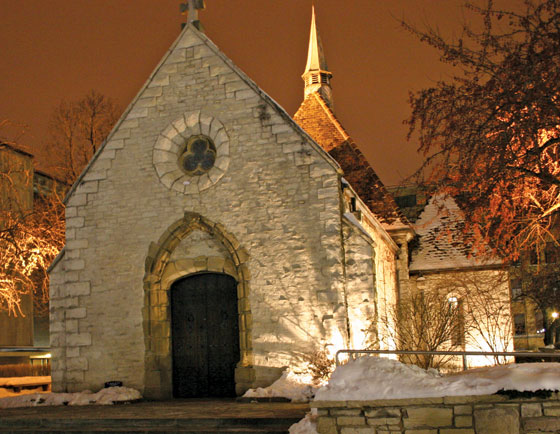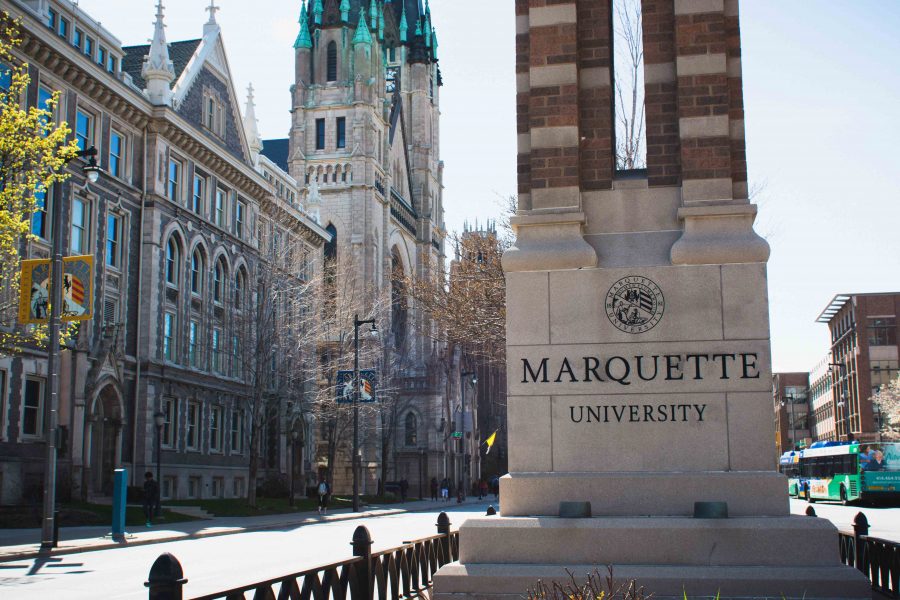Be the difference.
This is the call that teachers who graduate from Marquette University’s College of Education answer, a call that seems ever more urgent given the state of education in Wisconsin, but also one that may be silenced given proposed changes to Marquette’s College of Education.
Since 2011 when Act 10 was passed in Wisconsin, we’ve seen an exodus of teachers from the profession. Act 10 essentially eliminated union rights for public employees, a political move lauded as “dropping the bomb” on public education. According to a 2017 study by the Center for American Progress, the result has been a more than $10,000 decrease in teachers’ salaries, increased teacher turn-over, and an overall less experienced teaching force. Anecdotally, teachers report increased teaching loads, fewer hours to prepare for classes, and increased responsibilities outside of the classroom. Teachers feel burned out, under paid, and disrespected. It’s no wonder, then, that Wisconsin’s teacher preparation programs are facing an extreme shortfall of applicants and enrollees, as documented by the Wisconsin Budget Project. But as one social media meme recently joked, “There isn’t a ‘teacher shortage’; there is a ‘master’s-level professionals who will work for $35,000 shortage.”
It is against this broader political backdrop that Marquette University recently announced, via email and face-to-face meetings with College of Education constituents, the imminent reorganization of its College of Education, most likely by dissolving the stand-alone college in response to financial and enrollment concerns. Although university administration asserted, via email to the College of Education community, its commitment to “offering high-quality undergraduate and graduate-level education and counseling degrees in the Catholic, Jesuit tradition,” the administration also argued that “we cannot ignore these realities: enrollments in the College of Education have declined since 2010 and the college has operated at a significant financial loss for the last several years.”
We agree with the administration: we cannot ignore this reality. It is precisely the reality that educators warned about in the months-long protest against Act 10 in 2011. It is precisely the reality that school districts now face as they scramble to find qualified teachers, particularly in high-demand areas such as math and science. And it is precisely the reality that K12 students themselves face as their teachers leave the profession in droves, as funding is cut for arts and electives, and as they are judged by their now declining state test scores. It is indeed a reality we cannot ignore.
This is why at the most recent Democratic Presidential Primary debate, candidates shared ideas for how to, as South Bend, IN, Mayor Pete Buttigieg phrased it, “lift up the teaching profession.” This is why we’ve seen a “Red for Ed” movement nationwide, as education professionals rise up against unjust working conditions that adversely impact students. This is also arguably one of the reasons that Wisconsin elected former State Superintendent of Education Tony Evers as Governor in 2018, why the Department of Public Instruction has organized a task force to increase recruitment of teachers from diverse backgrounds, and why networks of public school advocates have become more vocal in Wisconsin and nationwide.
Marquette administrators are right: we cannot ignore this reality. The children of Wisconsin need us to speak out, enact change, and advocate on their behalf.
A Jesuit university, Marquette University is well positioned to lead this charge. Its central work is the formation of young adults who will uphold the Jesuit commitment to serving the marginalized, to living a commitment to justice, and to doing all of that through education. It is also a university that embraces its identity as an inner-city institution, one who should wield its privileges to serve its neighbors. Jesuits have historically responded to the dire need for education in the most marginalized communities by opening schools, building social projects, and committing themselves to nurturing the hearts and minds of students who would not otherwise have access to education. Who better to advocate on behalf of Wisconsin’s students and educators than an institution that carries this Jesuit mantle of serving justice and the greater good through education?
And yet, Marquette University has not been immune to the kind of corporate-minded leadership that has shaped both higher and K12 education. Marquette administrators were quick to remind College faculty at a recent meeting, “The bottom line is the university is a business,” despite our non-profit and Catholic status. That fundamental misunderstanding of our work underlies the supposed “reality” we are not meant to ignore: education doesn’t generate revenue. Administrators argue that other units on campus should not have to “subsidize” our work. However, education is a public good, the full value of which cannot be contained in isolated financial metrics. Its measure must include the cadres of well-trained and justice-minded practitioners who have found a home in the College of Education and who serve students in schools, colleges, universities, and nonprofits in Milwaukee and across the country—even right here at Marquette. The administration assures us that losing the status of a college will have no bearing on our work, but in light of recent layoffs, predictions of a university-wide enrollment crisis, and a growing national trend of universities terminating even tenured faculty, it’s hard not to see the end of the College of Education as a step in this direction and as a clear devaluing of the College’s work.
Even more dishearteningly, it’s hard notto see the dismantling of Marquette’s College of Education as part of the broader dismantling of education in the state of Wisconsin. Given the reality we are not meant to ignore, what we should be doing is engaging in advocacy: Advocacy for higher pay, professional dignity, laws that strengthen education, and funding for the full spectrum of counselors and art teachers and support staff that make schools work. Advocacy should also involve helping young people feel called to teach, attracting a teaching force as diverse as our students, and reimagining K12 schooling beyond the era of standardized tests. Advocacy should involve making education affordable for those who want to become teachers and linking our education programs to our Hispanic-serving institution initiative and our growing STEM programs. Advocacy must also be for Colleges of Education—meaningful, empowered, highly visible preparation programs integral to all these elements so desperately needed right now. Advocacy is all of this, but it is certainly not dismantling the College of Education.
Education needs a champion. Rather than back away from this challenge, Marquette has an opportunity to “be the difference” for students in Wisconsin and beyond by reinvesting in its College of Education.





Mary Black Rooney • Oct 5, 2019 at 9:54 pm
Please don’t close college of education